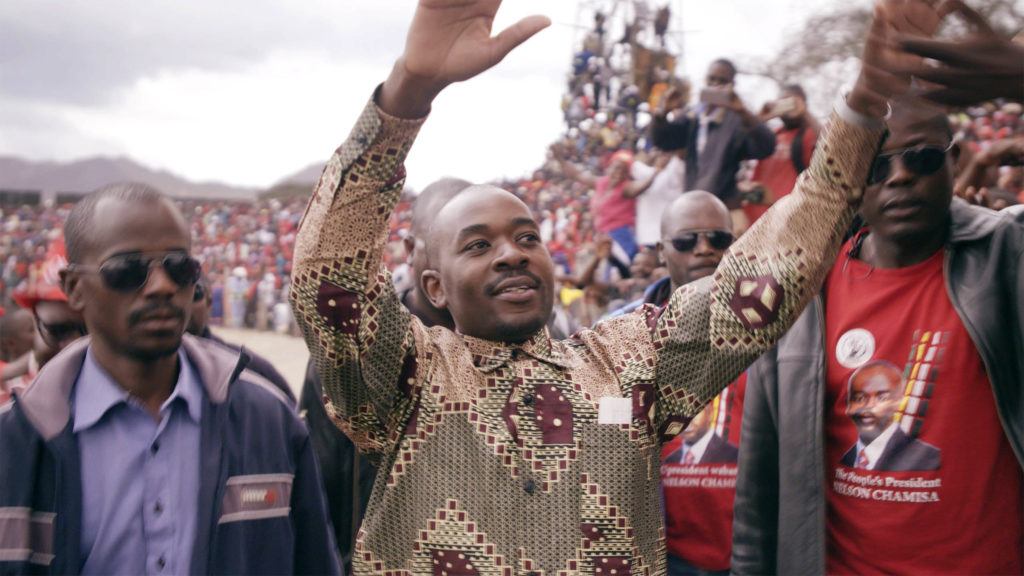President

MDC leader Nelson Chamisa in Camilla Nielsson's documentary, PRESIDENT. Image courtesy Sundance Institute.
Imagine if, in the 2020 U.S. Presidential election the Republican Party instead of accusing the opposition of rigging the election had themselves thrown out Democratic ballots or wiped them from the voting systems. Setting aside the extant security measures and decentralization of our current system in which elections are conducted and audited entirely at the state and local level, how would you prove that a fraud had occurred?
This is what PRESIDENT sets out to ask concerning the 2018 elections in Zimbabwe.
Like Russia, Turkey, and many eastern European nations, Zimbabwe is a one party dominant state, governed by the Zimbabwe African National Union – Patriotic Front (ZANU-PF). Following the coup d’etat of 2017, in which Zimbabwe Defense Forces overthrew the 40-year regime of Robert Mugabe, then Vice President Emmerson Mnangagwa assumed power.
Led by Nelson Chamisa, the opposition bloc, Movement for Democratic Change (MDC), challenged Mnangagwa in the 2018 general election. In response to the MDC allegations of numerous voting irregularities, the ZDF took to the streets to intimidate the opposition party.
Camilla Nielsson’s PRESIDENT follows Chamisa’s race from start to finish. This is both good and bad. We see the entire process of the MDC formulating their strategy to counter election fraud: In various planning meetings, Chamisa tells his staffers to organize a poll watching effort similar to how elections are run here in the U.S. The main difference is that many of these measures are codified into law here, whereas Chamisa and his supporters must go it alone, starting from scratch.
But the film takes the idea of documentary quite literally, relying solely on editing and footage to craft its narrative. Nielsson presents a chronicle of events rather than a thesis. Contrast this with Nanfu Wang’s IN THE SAME BREATH. There, the central argument—that the people of China and America’s suffering in the current pandemic is a direct consequence of the lust for power—is actively conceived, organized, and illustrated.
Nielsson’s documentary captures astonishing footage of ZDF assaults on unarmed citizens, and ruminates in the unfortunately weak case of election fraud presented before the high court—skeptical of 330,000 additional votes that materialized from 5pm to 7:30pm in the Mashonaland province, but lacking the ability to show root cause. However, the filmmakers add no compelling information to strengthen the argument better than the Republican insistence on widespread fraud in the 2020 United States elections.
So often have we held up African nations as an example of systemic corruption that it’s become a kind of spectator sport for western nations. But as the whole of the Anglo-centric world finds its masses entranced and enticed by the analgesic of indifference, mass media cannot have it both ways: We cannot give autocracy a megaphone and then pretend that having a point of view would violate journalistic integrity. We, too, must draw a line in the sand.